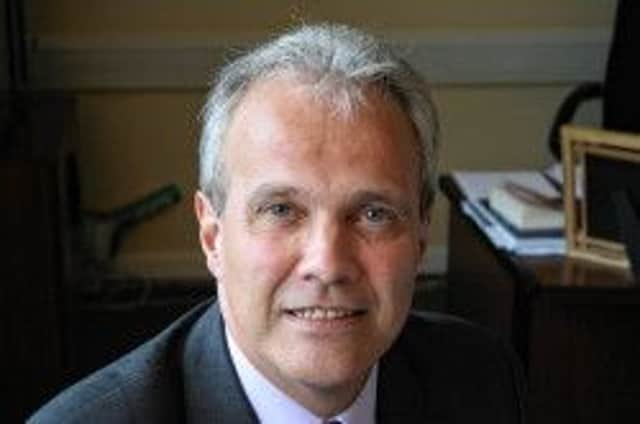Sandy Riddell: social work remains a vital service


Everyone has been to school: people know what teachers do. Everyone has been to their GP: people know what doctors do. Television means that most of us have a fair (if perhaps a little dramatised) idea of what police officers do. But when it comes to social work, most people are a bit confused.
Yet social work has a far-reaching jurisdiction. Social workers help over 600,000 people across Scotland every year, our workforce pushes 200,000 and social work services are by far the biggest consumers of the £10 billion local government budget. It remains, however, a mis-understood profession.
Advertisement
Hide AdAdvertisement
Hide AdAnd, fuelled by this misunderstanding, social work suffers from what can be a negative profile. It can be known for its role in working with “problem families”. It can be blamed when things go wrong. But this is not what social work is all about and, as we move into an era where services from health and social work are to be aligned, it is important that my profession is better understood by the people we support and the people we work with.
Perhaps social work services are not well understood because the work they do is almost in the background and because it can be sensitive. But the best description of social work services I’ve heard is that they are there to help people who are in crisis.
That crisis might be the lone parent who is overwhelmed and needs a bit of support to organise finances, housing and proper parenting of his or her children. It might be the offender just out of jail who needs support to find somewhere to live and a job to keep them from re-offending. It might be the old person who needs intense support to give them the confidence to keep living in their own home after a fall. It might be the child who needs a better place to live where people can care for and love them properly.
It is so many things that its meaning and value can easily be lost. However, it is incredibly meaningful and valuable for those people that need support. It’s a support they can’t get from anywhere else.
Social work makes a unique contribution to people’s lives because it deals with their whole lives.
Sometimes we get it wrong and, unfortunately, at times like this social workers can become an easy target and are easy to blame.
The most high-profile examples of this are the deaths of children. These cases are well known, but also thankfully rare. The fact that we can name the children that have died at the hands of their parents or people close to them shows how rare these cases are. The fact that the finger of blame automatically points to social work is not fair or deserved.
Most of the time, however, we get it right: the people once addicted to drugs and alcohol who turn their lives around because a social worker sorted out housing, benefits and access to rehabilitation services and stuck with them; the child in a loving foster care placement because a social worker saw the risks they faced at home and intervened; the learning-disabled adult who can go swimming and have a coffee with friends instead of going to a day centre, because a social worker found out what he was really all about and what would make him happy; the car crash victim helped to get their life back on track after a devastating brain injury because a social worker assisted in getting her house adapted and the occupational therapy needed for her to re-learn the skills she had previously taken for granted.
Advertisement
Hide AdAdvertisement
Hide AdSocial work is a fantastic profession driven by values that mean social workers see the whole person and all their needs. That in turn means that they also have the skills to work with other professions like health and education and police because they see that everyone has something to offer.
So in the week of World Social Work Day, let’s hear it for the social worker.
• Sandy Riddell is president of the Association of Directors of Social Work www.adsw.org.uk